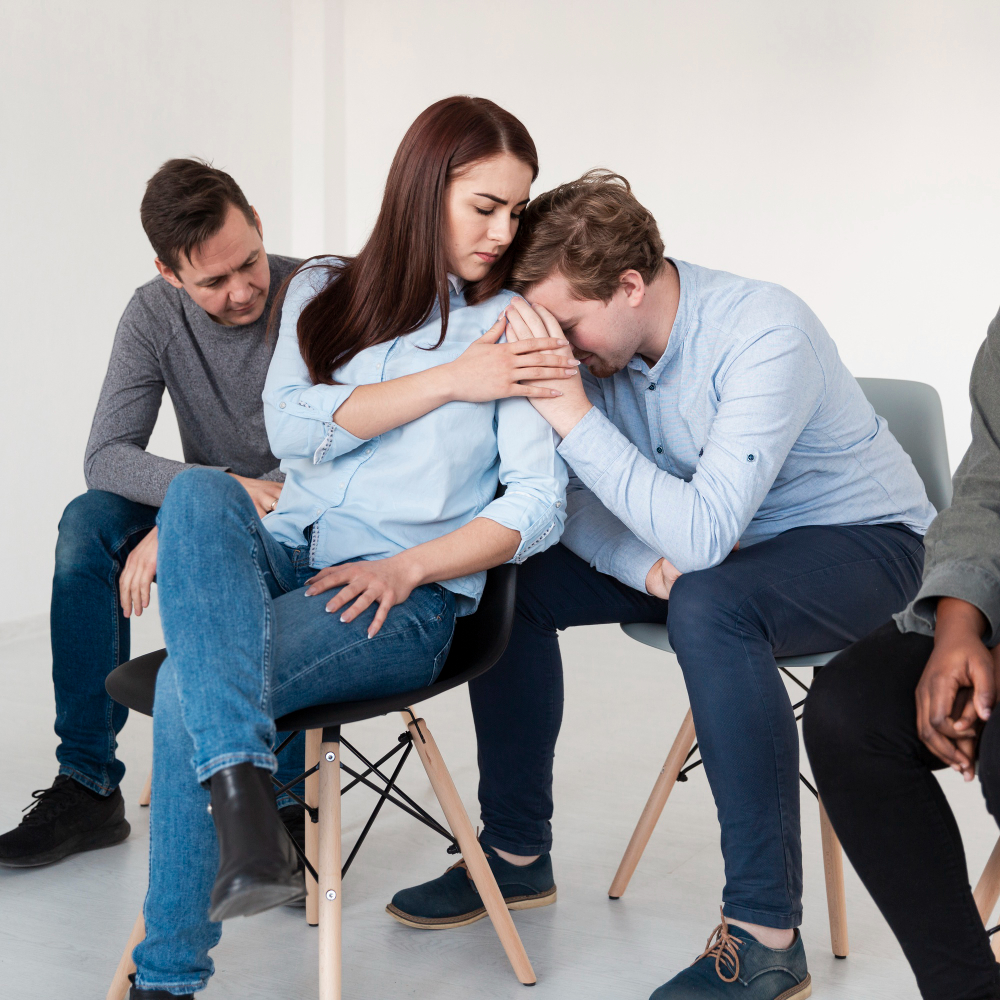Seeking emotional support from those who experience depression is one of the most effective methods to treat depression, according to the National Alliance on Mental Illness. While many people seek support from friends and family, others who are not experienced with depression may not be able to relate to you or know how to help.
A good way to get assistance from individuals who understand what depression is like is to join a depression therapy or support group. Depression support groups come in two primary varieties: support groups and group therapy.
There are depression support groups for individuals who are providing care for someone else who is depressed, as well as groups for persons dealing with any kind of depression that can be advantageous to both parties.
How Do Groups for Therapy for Depression Operate?
A lot of support groups for depression are run by non-professionals. Alternatively, they might be made up of people who have depression or are currently going through it. Support groups can be secure spaces where you can talk about your ideas and emotions as well as hear other people’s experiences that might be helpful to you and make you feel less alone. They do not, however, take the place of professional guidance.
Professionals offer depression therapy groups. These groups frequently follow the model of group therapy, in which each member develops understanding and coping mechanisms while getting expert assistance and interacting with other members of the group.
Depression support groups are provided without charge, however, because they are considered therapy, depression therapy groups are frequently charged for. However these groups might be less expensive than individual therapy, or they might be reimbursed by insurance.
Many people assume that a child who acts out in class has ADHD, but in reality, they could be exhibiting symptoms of an anxiety disorder. Go to the esketamine clinic and receive assistance if it is present.
How to Make Depression Support Groups Effective for You
It’s common for therapy groups to require participation. But, you may choose to observe and learn from your therapist as you meet other clients and acquire the skills they teach, or you may try a few different groups until you find one that works for you.
Ask inquiries ahead of time if you have any doubts regarding the group. To make sure that group members can interact well with one another, therapists frequently screen clients before allowing them to join.
If licensed therapists are leading your depression support group, they could be able to address any queries you may have. If a professional isn’t running your depression support groups, though, you might be able to find solutions from group members who have been there longer.
To get the most out of the experience, try actively participating in the group once you’ve found one where you feel at ease. You could discover that sharing your experience fosters trusting relationships in an accepting setting.
Depression support groups, according to experts, might encourage patients to adhere to their treatment regimens. Since that sadness frequently manifests as a lack of motivation, persons who are battling depression may find this motivation helpful. It may help you to have a support group to hold you accountable for attending therapy sessions if you struggle with motivation.
Talking to people who have had similar difficulties could also be helpful if you are unsure if a specific depression treatment strategy is helping you. You can jot down these thoughts in a support group and bring them to your therapist’s session to go over them in greater depth.
A wide variety of persons in varying stages of depression recovery are frequently seen in depression support groups. People who have lived with depression their entire lives regularly support groups, and others can often benefit from their experiences.
You may pick up fresh information about depression and its relationship-damaging effects in these groups. You can also learn about therapy alternatives, constructive coping mechanisms, and other topics you were ignorant about before. Even though professional treatment for depression may be beneficial for each individual, joining a support group in addition to seeing a certified therapist might be helpful.
Feelings of loneliness and isolation are common side effects of depression. Through group therapy, people can connect with others going through similar struggles in a kind and understanding setting. This feeling of connectedness might lessen the loneliness that sadness frequently brings with it.
Speaking with others about their struggles with depression can be comforting and uplifting. It assists individuals in realizing that their challenges are not unique to them. This mutual knowledge and sense of community fostered by this shared understanding can have uplifting and healing effects.
A big part of de-stigmatizing depression is group therapy. Open communication about emotions and experiences within the group helps normalize the challenges related to depression. By lowering feelings of guilt and self-blame, this normalization can motivate people to talk more candidly about their personal experiences.
Observing others overcome their sadness or make progress can inspire and give hope. Members of the group may pick up coping mechanisms and insights from one another, providing helpful advice for symptom management and enhancing general well-being.
People in group therapy are exposed to various viewpoints and coping mechanisms. Members could contribute fresh perspectives and original insights that a therapist might not be able to deliver.
This variety can enhance the therapeutic process and increase the scope of coping mechanisms that participants might employ. To conquer your depression, have a meeting with spravato providers.
Conclusion
It’s crucial to remember that while group therapy has the potential to be very beneficial, everyone has different requirements and preferences. Certain individuals might derive greater advantages from individual therapy or a blend of individual and group methodologies. The particular needs and preferences of the person experiencing depression should guide the choice of therapy.

